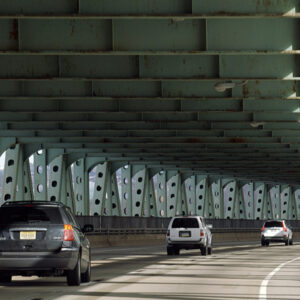Pennsylvania drivers already pay one the highest gas taxes in the nation every time they fill up their tank. But driving in the Delaware Valley, you might wonder where all the money is going. Nevertheless, citing a lack of funding, PennDOT has proposed putting toll bridges across the commonwealth as part of a public-private partnership to pay for upgrades and maintenance. The concept was approved in November 2020 by the Public-Private Partnership Board (P3 Board), but the details were not released at the time. Since the approval, nine bridges have been identified. One is the heavily traveled Girard Point Bridge on Interstate 95.
After the plan was made public, legislators have been crying foul. The state Senate took the first steps in putting the brakes on the plan with SB 382 being voted out of the Transportation Committee this week. The 9-4 vote fell along party lines on a bill Republicans say is needed to ensure their voice is heard.
“The size, scope, and process of PennDOT’s P3 bridge tolling initiative are beyond the legislative intent and statutory requirements of Act 88,” said Sen. Wayne Langerholc (R-Bedford, Cambria, and Clearfield). “This high-risk plan to toll nine bridges will counter our economic recovery efforts. Our answers to fix revenue problems cannot be merely met with tacit approval for another tax, fee, or toll on the backs of Pennsylvania’s hardworking families and residents.”
He was joined by Delaware Valley Sen, Bob Mensch (R- Berk, Bucks, and Montgomery). “Senate Bill 382 will help to provide better government to Pennsylvania. Senate District 24, which that I represent, encompasses three counties – Berks, Bucks, and Montgomery,” Mensch said. “My greatest concern with the action of the P3 Board is the effect on commercial development in Berks County. Are we creating winners and losers with the way we’re tolling bridges? I think we are, and I believe we need to sit at the table and talk about this together to come up with a better funding solution.”
House lawmakers Sheryl Delozier (R-Cumberland), Jason Ortitay (R-Allegheny and Washington), and Andrew Lewis (R-Dauphin) introduced a bill HB 920 to achieve the same goal.
Gov. Tom Wolf isn’t sitting idle as the tolling receives a cold reception and gas prices continue to climb. The bipartisan Transportation Revenue Options Commission will hold its first meeting on March 25. The Commission includes legislators, business leaders, unions, multimodal representatives, public transit agencies, law enforcement, environmental experts, and bicycle/pedestrian advocates.
Wolf noted PennDOT has $9 billion in unmet transportation needs, but he wants to be creative in finding funding solutions. “Phasing out the burdensome gas tax, coupled with seeking long-term reliable funding solutions that will keep pace with our infrastructure needs, deserves a close examination. Forming this bipartisan commission will bring multiple, bipartisan voices to the table to ensure that we can examine reliable, sustainable revenue solutions to address both near-term and long-term funding needs,” Wolf said.
Senate Transportation Chairman Sen. John Sabatina (D-Philadelphia) will serve on the board. “It’s my honor to accept the appointment to this commission to find solutions to Pennsylvania’s transportation funding crisis,” Sabatina said. “I’m looking forward to working with the other commission members, who come from a wide variety of transportation industry backgrounds.”
Transportation issues usually enjoy broad, bipartisan support. Act 89, the transportation funding bill passed in 2013 which raised the gas tax, had support from labor and business groups. However, at least two “yes” votes lost their seats when their opponents seized on the issue.

